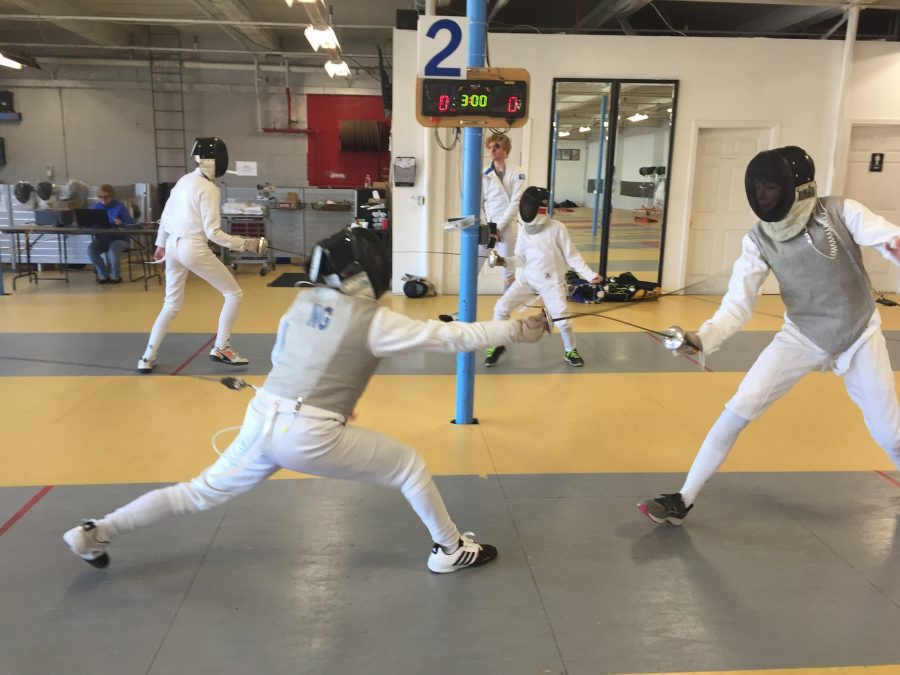FenciNg is the life for sophomore Ng
Sophomore Natalie Ng takes a swing against her fencing opponent.
November 17, 2016
Sophomore Natalie Ng was on the fence. She tried swimming, field hockey, and tennis, and finally, after following her sister’s roommate’s advice, she has found the right sport for her: fencing.
Ng started fencing in the beginning of seventh grade and plans to continue through college.
Ng chose the foil, a blade out of the three weapon options: the foil, sabre, and épée.
“In foil, there’s so many rules,” Ng said. “You need to be able to get your opponent to do what you want them to do in order to hit because one mistake, and it’s not your point anymore.”
Ng has been fencing competitively for about two years and has medaled in a local competition. In competition and practice, fencing an opponent requires employing various strategies.
“You’re going to have figure out how to beat them first,” Ng said. “You can try different things to see what works for you, see what works to beat them, but everybody’s going to be different.”
When Ng fights against her opponent, she must stay focused.
“I think the most important thing about fencing is to just stay calm during a competition, to stay calm and make sure that you think and that you don’t turn on autopilot mode,” Ng said.
For Ng, the Worcester Fencing Club, where she practices, is like a family where everyone helps each other out.
“[If] you have a problem with fencing, you talk to your fencing friends because they will understand,” Ng said. “They know what it’s like.”
Sophomore Joyce Fang, a friend of Ng, sees Ng’s connection with the fencing community.
“I guess [Ng is] kind of an assistant,” Fang said. “She helps out little kids. I guess there’s like one teacher and lots of kids, so she’ll like assist with the ones who may not get enough attention.”
Ng’s fencing relieves her of her daily troubles.
“It’s a great way to take out your anger after a long day,” Ng said.
Ng practices two to three days a week, and often gets home around 8:30 p.m., after which she still has to eat dinner and finish homework, resulting in a 12:30 a.m. bedtime. Nevertheless, Ng will still continue fencing day after day.
“It’s like a dance without [your opponent] cooperating with you,” Ng said.









